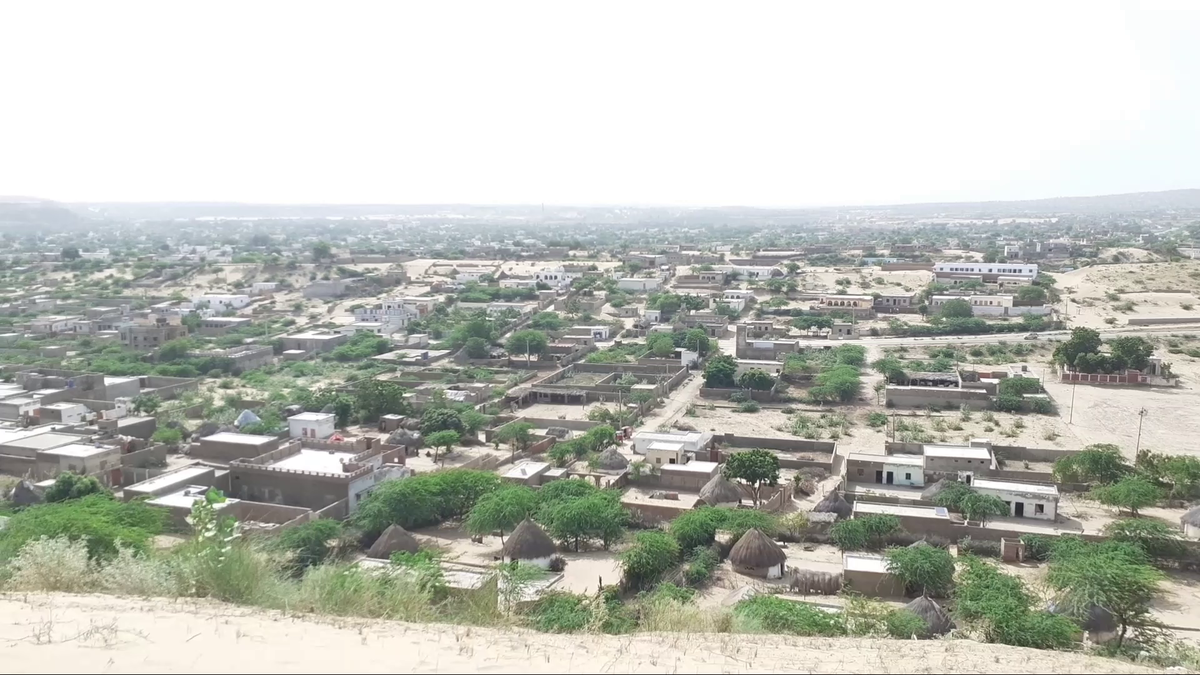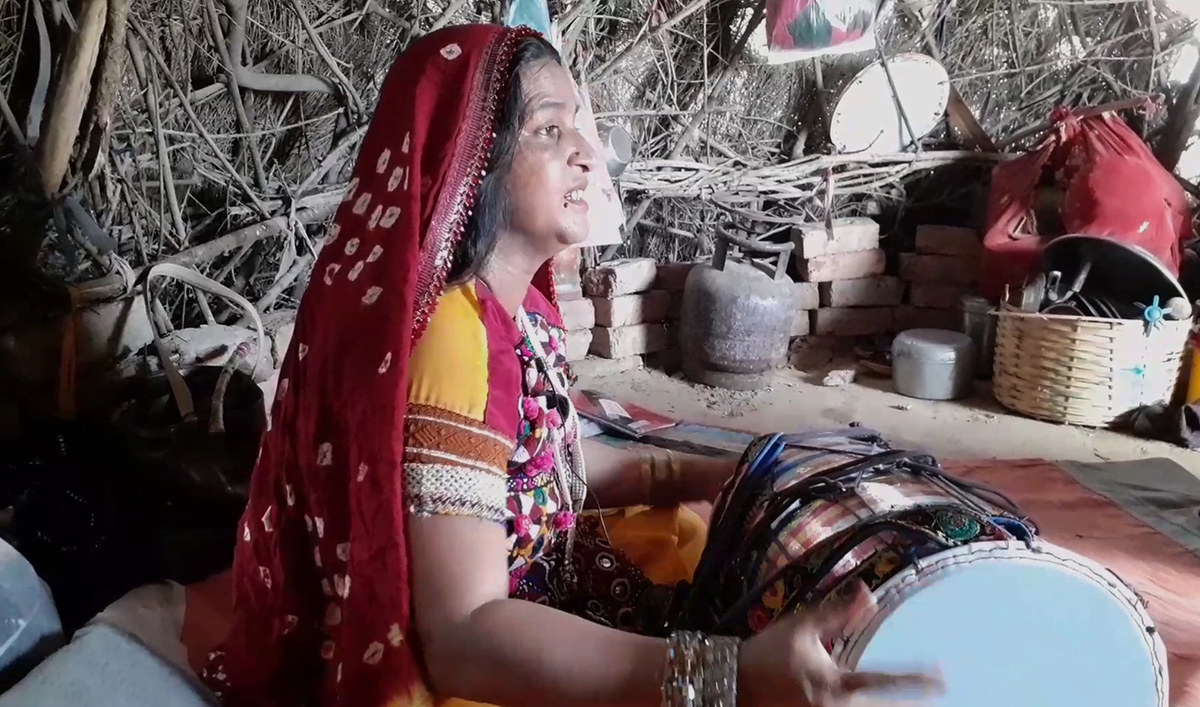In Pakistan’s Tharparkar, single mother defies gender norms to take up drumming as profession
MITHI, THARPARKAR: Rocking a colorful Rajasthani dress, singing Marwari folk songs, and playing a drum that hangs from her neck attached to a sturdy blue strap, Maryam Naz, 40, impresses her audience with her performance standing atop sand dunes in Tharparkar, a southern Pakistani desert region where seeing a woman publicly singing or playing instruments had largely been unheard of.
Playing a drum, which is a two-headed hand drum, is common all across the subcontinent in countless folk genres, devotional traditions, and family functions. In Pakistan, most drum players are men, therefore, seeing a woman playing the percussion instrument in public is a rare sight.
But for Naz, a single mother of six children hailing from Tharparkar’s Mithi city, traditionally-defined gender norms could not become a hurdle and she chose drumming as a profession when things turned difficult for her following her husband’s death in 2016 nearly a decade ago.

Aerial view of Mithi city from mud dunes, it is the capital of Tharparkar District in the Sindh province of Pakistan on July 01, 2023. (AN Photo)
“After my husband’s death, I faced many problems, I was unable to feed my children,” Naz told Arab News. “I had to earn for my children, so I decided to sing and play in public.”
Naz, who also sings in Urdu, Sindhi, Dhatki and Marwari languages, belongs to the Manganiar community, which has produced many traditional folk musicians in India’s Rajasthan and Pakistan’s Tharparkar. Members of the community are known for their unique folk style and have contributed significantly to the region’s rich cultural heritage.
She says she learned singing and playing drum at the age of eight from prominent local singer and drum player, Ustaad Soomar Faqir, while her skills were further polished by her father, who also used to sing and play drum at weddings and other events.
Naz initially sang and played drum at weddings, but she was criticized when she took it up as a profession due to cultural norms. She, however, defied the norms and continued doing what she was best at, so much so that many Sindhi-language entertainment channels invited her on shows and appreciated her music skills.

Maryam Naz, a Dholak player is seen singing and playing Drum at her hut house in the desert of Tharparkar, Sindh, Pakistan on July 01, 2023. (AN Photo)
Imtyaz Dharani, a local journalist, told Arab News he reported Naz’s story for the first time on his YouTube channel, Indus Globe, in 2020.
“I saw her first time playing dholak in a wedding function in Mithi, where she was playing dholak in an amazing way,” he said. “So far I haven’t found such a woman dholak (drum) player in the Sindh province.”
Naz says it is often difficult for her to make ends meet amid rising inflation in Pakistan and due to inconsistent earnings, but she is passionate about what she does.
“I could have another profession for earning, but I was passionate [about playing drum and singing],” she said. “I did not quit.”
Nadeem Jumani, a local poet from Tharparkar, said Naz had been playing drum alongside many prominent Sindhi singers, including Sanam Marvi and Allah Dino Junejo, but she did not get her due share of fame.
“She is a very talented artist, therefore [Sindh culture minister] Sardar Shah should give her a stipend,” Jumani said.
He added that Naz’s skills should be lauded as she was challenging the gender stereotypes created by the society.
“In a male-dominated society, it is difficult for women to do a government job, but she sings and plays drum [alongside] her male counterparts,” he said.
“After her initiative, the trend is changing here as other girls from her community are also coming forward to learn drum-playing skills.”



